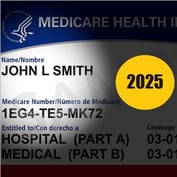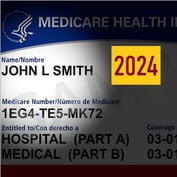The Centers for Medicare & Medicaid Services (CMS) hires private detectives to go out and track down Medicare claim fraud. Witnesses put the spotlight on the Medicare gumshoes today at a Medicare hearing organized by a House Energy & Commerce subcommittee.
The U.S. Government Accountability Office (GAO) says improper payments of all kinds may have accounted for about $50 billion of Medicare’s $604 billion in 2013 medical spending.
See also: Watchdog: CMS keeps bad Medicare administrators
CMS created the Zone Program Integrity Contractor (ZPIC) program to investigate allegations of Medicare claim fraud in the country’s seven traditional Medicare program claim processing zones. Kathleen King, a GAO director, testified that the ZPICs say they helped Medicare save about $250 million in 2012.
CMS does not know how quickly ZPICs are conducting investigations, King said. The GAO is looking into the possibility that the ZPICs could save Medicare more money by acting more quickly, according to King.








 June 25, 2014 at 02:02 PM
June 25, 2014 at 02:02 PM










